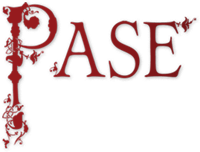Table of Contents
Top of page
Name
Summary
Distribution Map
Property List
Profile
Bibliography
Bottom of page
Beorhtstan 17
Beorhtstan (Beorhtstan banne), burgess of Winchester, fl. TRE
Male
CPL
4 of 5
Summary
Among the burgesses of Winchester TRE was a Brucstanus banne who paid 10d. rent for his house.Profile
Among the burgesses of Winchester TRE was a Brucstanus banne who paid 10d. rent for his house. Brucstanus is a clearly transcription error, but von Feilitzen’s suggestion that it probably represented Brunstanus (Winton DB 192; von Feilitzen 1976: 152) is unconvincing, since an n would have been hard to misread as a c. More likely is Bricstanus (misreading the single minim of i for the two minims of u), for Beorhtstan.If the byname banna is an unattested noun derived, as suggested (von Feilitzen 1976: 207), from OE bannan (‘to summon, command’) or the hypothetical OE precursor of Middle English bannen (‘to curse’) it would have meant that the burgess in question was called ‘Beorhtstan the summons’ or ‘Beorhtstan the curse’, both of which seem unlikely constructions for names. More likely as the origin of banne is the personal name Banna which appears as the patronymic of Alwig Bannesone, a wealthy Somerset thegn in 1066 (Tengvik 1938: 150), and in place-names (PN Oxon.: II, 411–12).
Bibliography
PN Oxon.: Margaret Gelling, The Place-Names of Oxfordshire, 2 vols, English Place-Name Society 23–24 (Cambridge: Cambridge University Press, 1953–4)
Tengvik 1938: Gösta Tengvik, Old English Bynames, Nomina Germanica 4 (Uppsala: Almqvist and Wiksells, 1938)
von Feilitzen 1976: Olof von Feilitzen, ‘The personal names and bynames of the Winton Domesday’, in Winchester in the Early Middle Ages: An Edition and Discussion of the Winton Domesday, ed. Martin Biddle, Winchester Studies 1 (Oxford: Clarendon Press, 1976), 143–229
Winton DB: ‘The Winton Domesday’, ed. and trans. Frank Barlow, in Winchester in the Early Middle Ages: An Edition and Discussion of the Winton Domesday, ed. Martin Biddle, Winchester Studies 1 (Oxford: Clarendon Press, 1976), 1–141 [cited by entry no. in Survey I, of c. 1110]
